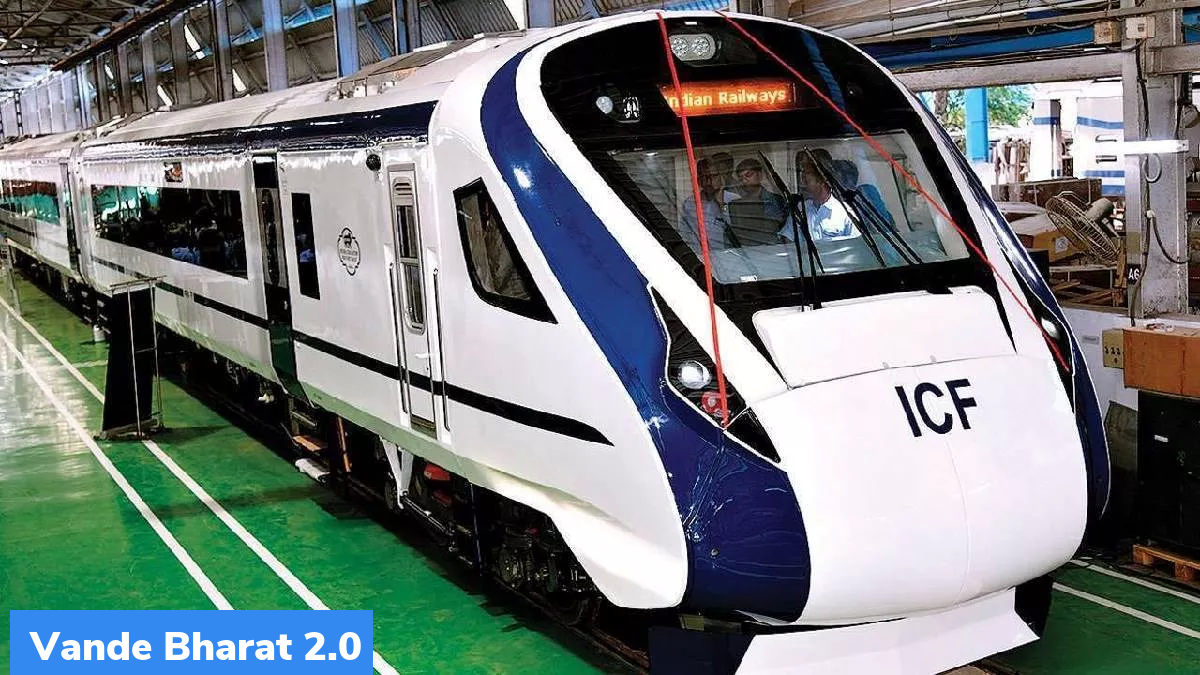Vande Bharat 2.0
Prime Minister Modi launched the new and upgraded version of Vande Bharat Express between Gandhinagar and Mumbai.
Key facts
- The latest version has cost over Rs 115 crore – Rs 15 crore higher than the previous version.
- The new train can reach the maximum speed of 160 km per hour in 129 seconds, around 16 seconds faster than the other Vande Bharat trains.
- It needs to run almost a km less to reach the maximum speed.
- It weighs just around 392 tonnes, 38 tonnes lighter than the previous version.
- This train has improved riding index of 3.26 at 180 km per hour from the earlier 3.87. A lower riding index means better comfort and steadiness provided by the train while in motion.
- It is equipped with Kavach, an automatic anti-collision system. This is not available in the previous versions of the Vande Bharat trains.
- The coaches have disaster lights and their battery backup lasts for 3 hours. The previous version has only one-hour battery backup.
- The new train is higher, providing protection against floods up to 650 mm, an increase from 400 mm.
- The exterior has 8 flatform-side camera and the passenger guard communication facility in coach has automatic voice recording feature.
- All seats in this train are recliner seats, as opposed to the previous versions having fixed backseats in lower class.
- Executive coaches have the additional feature of 180-degree rotating seats.
- Internal air is filtered through photo catalytic ultra violet air purification system with UV lamp that deactivates 99 per cent of germs. Earlier versions do not have these air purifiers.
- The new coaches have a centralized coach monitoring system through CCTV cameras and the internal network supports data at 1 gigabyte per second. This helps improve the quality of streaming audio-visual information.
Vande Bharat Express
Two Vande Bharat trains are currently operational – one from New Delhi to Varanasi and the other in New Delhi to Katra. The first Vande Bharat Express train was launched in 2019 on the New Delhi-Kanpur-Allahabad-Varanasi route. The government is planning to develop a total of 400 of these trains in the next three years.
Month: Current affairs - September, 2022
Category: India Nation & States Current Affairs


